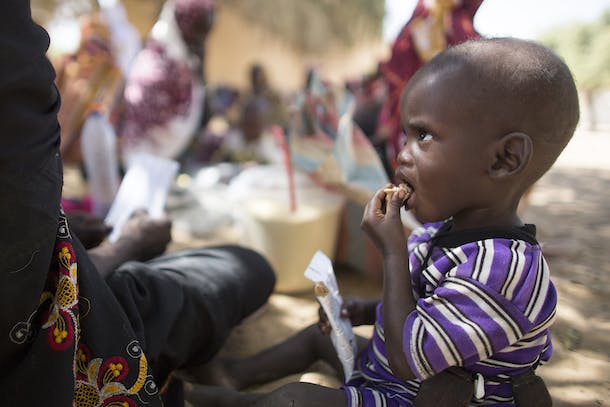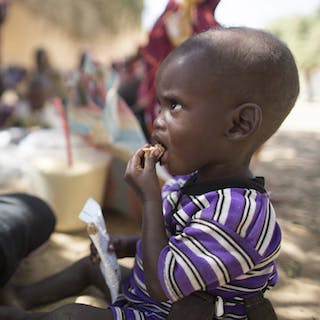
The United Nations describes the Lake Chad region of Africa as “a region under pressure,” which is grappling with a serious humanitarian crisis.
What is the situation?
According to the UN Office for the Coordination of Humanitarian Affairs (OCHA), communities across the Lake Chad region (specifically in northeast Nigeria, Cameroon, Chad, and Niger) are struggling with “the compounded impact of climate change, deep poverty, and violent extremism.”
Lake Chad, an important source of water and economic opportunities in the region, has shrunk to one-tenth of its size. The Food and Agriculture Organization (FAO) has called it “an ecological catastrophe.”
Combined with poverty and violence related to Boko Haram, there are now more than 10 million people – about two out of three people in the area – in need of life-saving assistance. Insecurity in the region has prevented people from cultivating their land for food, driven up hunger and malnutrition, devastated livelihoods, led to disease outbreaks, and forced families to flee their homes. Schools and other vital services and infrastructure have also been threatened.
What is the response?
UN agencies and other humanitarian partners have been working to reach families in need, but they need additional resources to respond. Funding helps provide water and sanitation, medicine and immunization against measles and other diseases, psychosocial care, education, emergency shelter, and food – a priority need as the region faces alarming levels of food insecurity. In total, the UN and humanitarian partners have appealed for US$1.5 billion for the Lake Chad region in 2017.
Last week, the UN, Norway, Nigeria, and Germany hosted the “Oslo Humanitarian Conference on Nigeria and the Lake Chad Region” where donors pledged more than US$670 million for relief operations over the next two years.
According to the UN, the resources pledged at the conference will help scale up the response to reach the most vulnerable people – with special attention focused on the protection needs of women, children, and youth – and support longer-term and durable solutions for displaced populations.
How can you help?
Raise awareness: There are many challenges on the world’s agenda right now, and the humanitarian crisis affecting the Lake Chad region and northeast Nigeria needs more attention. Use your voice to raise awareness of the crisis and call for support. Learn more and share information from OCHA.
Donate: Help provide humanitarian agencies and partners with resources to respond.
Donate to OCHA’s Nigeria Humanitarian Fund.
Toby Lanzer, the UN Assistant Secretary-General and Regional Humanitarian Coordinator in the region, recently wrote:
“We have a choice. We can stand back and hope that the problem goes away. This is the short-term ‘easy way out’ but likely to bite back in the medium-term as the combination of abject poverty, environmental degradation, and violent extremism could fuel further violence and insecurity in the Lake Chad region. …Instead we must reinvigorate our resolve and commitment to a better future for all by investing in those who need it today.”
Join the UN today in supporting vulnerable people in the Lake Chad region and in northeast Nigeria.
[Photo Credit: Espen Røst / Bistandsaktuelt]

